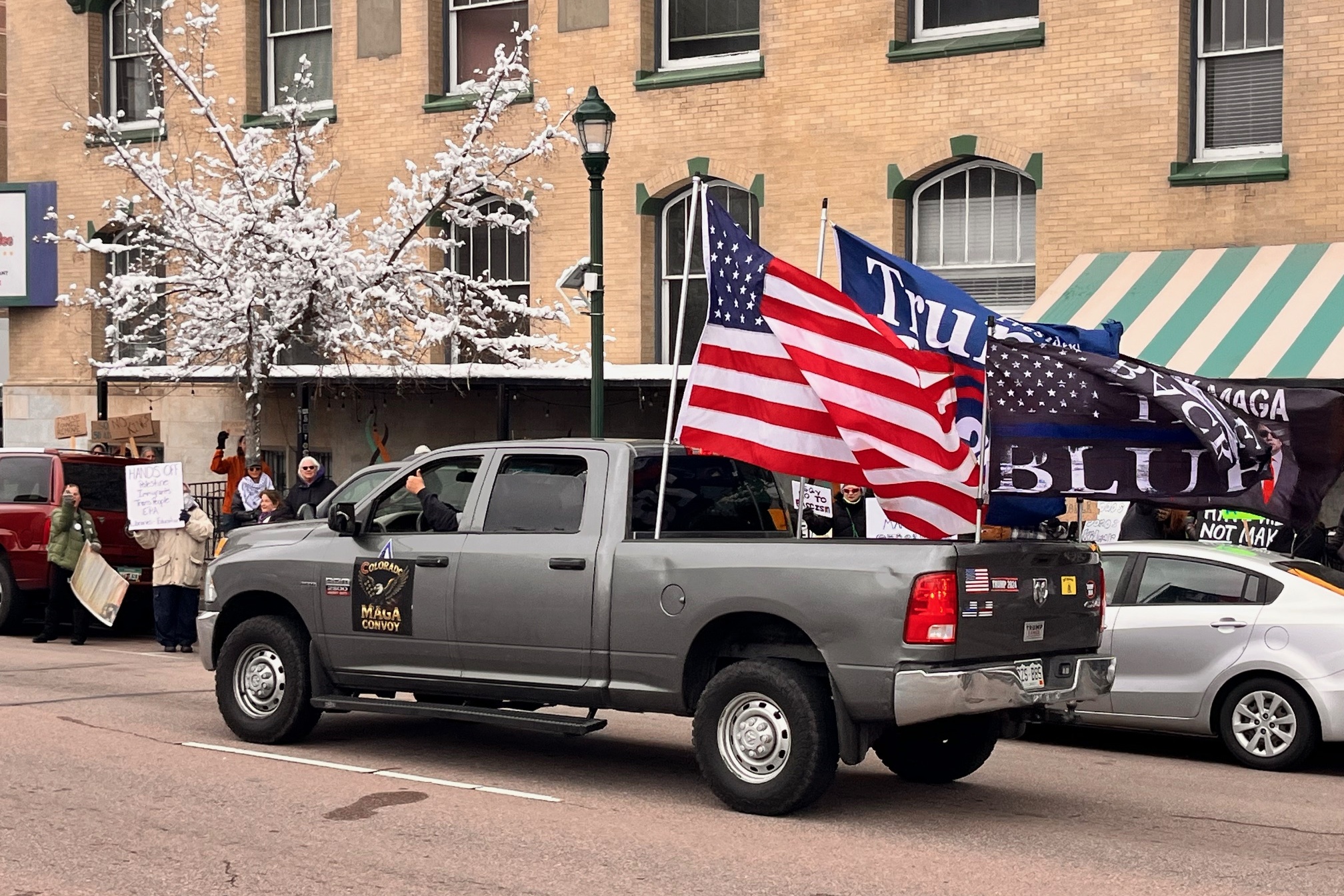
Three women who worked as dispatchers at the Lake County Sheriff’s Office who say they were sexually harassed by the department’s undersheriff settled their civil suit for $875,000. The settlement does not include an admission of guilt or liability from county commissioners, the sheriff’s office or former undersheriff Fernando Mendoza.
“I feel really relieved that I can move forward with my life,” said Nicole Garner, one of the dispatchers who filed suit. “I'm happy with the outcome, and it does restore my faith that sometimes the good guys do win.”
In late 2017, Garner and two other dispatchers, Maria Chavez and Chelsa Parsons, decided to come forward about the sexual harassment they had faced at work. Garner reported the harassment to a deputy at the department. Later, she and the other women were interviewed by TV news station KMGH.
“Working with Mendoza was very frightening, very intimidating,” Garner said. “He was very controlling, it was a very controlled environment.”
He made comments about her body, showed up at her home and would watch her on cameras in the station and then text her to tell her he was watching her.
“There was an issue with getting uniforms, new uniforms for dispatch, and when our shirts came in Mendoza asked me to come into his office so he could inspect my shirt,” Garner said. “That's when he said, ‘Damn Nikki, your tits look 3-D’. And that was highly uncomfortable.”
Weeks after Garner reported the harassment, Mendoza was fired from the department. The attorney who represented the women, Iris Halpern of the law office Rathod Mohamedbhai, said that after the undersheriff was let go “there was a campaign by management at that time at the Sheriff's office to marginalize and isolate Maria, Chelsa and Nikki.”
Halpern said emails sent from higher-ups to the staff instructed them to avoid speaking with the dispatchers, to keep the door to the dispatch area closed and to remove the water dispenser and refrigerator from the dispatch area, which meant the dispatchers, who are unable to leave their phones, were denied water and food during their shifts.
“The overall message that was shared with my clients was that they should have never come forward,” Halpern said. “That it was going to jeopardize their relationships and career in the sheriff's office.”
Despite the retaliation and an internal investigation that found Mendoza’s “sexual innuendos” did not rise to the level of workplace sexual harassment, the women pressed on. Then, Mendoza’s step-daughter came forward. She too had been harassed.
The young woman reported the abuse after she saw allegations of misconduct on Facebook. In April 2019, Mendoza was sentenced to 15-months in county jail after his conviction by a 5th Judicial District jury of attempted aggravated incest and attempted invasion of privacy.
During the criminal case and civil litigation, Lake County elected Amy Reyes to be the new sheriff — she is the first female sheriff in Lake County and only the second in Colorado.
“As a female living in Lake County, we, we've got to have a voice and things need to change,” Reyes said. “And I felt like I had what was needed to start making that change in the culture.”
Since entering office, Reyes has made changes to the policies surrounding sexual harassment, but she notes that it’s more than just policies that make a change.
“It's about following those policies and ensuring that the culture really does adopt those policies,” Reyes said. “You can have something written on paper, but if it's not followed or adopted by the agency, by its culture, it's just words on paper.”
After Reyes took office in January 2019 she called Garner, Parsons and Chavez and told them that she admired them. She asked them to return to the Lake County Sheriff’s Office. Garner and Chavez returned, but Parsons stayed at her new job as a court advocate.
“I just want survivors to know you're not the only one. If you feel like coming forward is right for you, you know, it is scary. I'm not going to say it's not, but, I would say come forward if you can,” Parsons said. “If it's happening to you, it's probably happening to somebody else and maybe they're afraid to come forward too, so maybe you can help somebody by coming forward and just do what's right for your family and whatever that justice is for you.”









